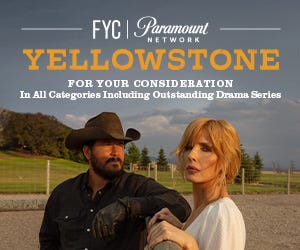Actor Crisis: TV & Film are Now Just Branding. Depressing, Right?
Part five: How the endorsement-liquor-beauty brand game has turned actual roles into a career's smallest part, and what to learn from Taylor's Version

This is the grand finale in my series about the existential crisis in acting: the pipelines of child stars and nepo babies, who and what’s to blame, and six ways to take charge of your career including how to be your agent’s boss. If you have any thoughts on the problem and how to fix it, I’m at richard@theankler.com.
While we’ve devoted most of this Actor Crisis series to the plight of the rank-and-file actor, the starving infantry in Hollywood’s army, let’s focus today on those blessed few who have made it — our Top Guns, if you will. What can we learn from how stardom operates today?
Stars today exist largely in the same fashion as stars of yore, with endorsement campaigns, tabloid relationships, red carpets and scandals, with the best-managed of them eventually breathing the more rarified air of being Oscar contenders, or having that intangible ‘it’ factor. Recent breakouts on this glide path include Sydney Sweeney, Glen Powell, Florence Pugh, Barry Keoghan, Jenna Ortega, Austin Butler, Paul Mescal, Anna Taylor-Joy, Mikey Madison, Cynthia Erivo and Sebastian Stan, to name a very few. Go back a half-generation to Ryan Reynolds and Margot Robbie, and you’ve got plenty more.
As in the past, turning an actor into a star is a combination of luck and skill — finding that breakout role that defines them and turns them into a figure of public hunger. Taylor-Joy in The Queen’s Gambit or Sweeney in Anyone But You. Hopefully they can then follow that success with a string of successful roles to cement their status.
At the top of the ladder sits those very few who can pull off a Jennifer Lawrence: starring in a giant blockbuster, and giving a dramatic performance that leads to Oscar glory, all in a short space of time. Timothée Chalamet seems on the brink of pulling off this trick with his Dune/A Complete Unknown combo.
The Billionaire Star
For those who make it to the top, the opportunity to cash in and exploit one’s brand is beyond imagination. It used to be considered beneath a movie star to do TV . . . and a sitcom role or reality series was what they crawled back to after their moment on the big screen had faded. No longer! Go ahead and host a game show and the world will hardly blink at this point. After all, a game show hosting stint no longer precludes a run for the Presidency, so why should it affect your A-list status?
In the past, a star had to be judicious and reserved about what they attached themselves to, fearing audiences would rebel if they saw their favorite stars in tawdry TV commercials. The term “Japander” was invented for American stars who went to Japan to film TV commercials that would be unseen by Western audiences, as seen in Lost in Translation. But that movie came out 21 year ago (if you can believe it). Stars’ ad campaigns are considered part of some kind of virtuous circle building up the brand. You’d need a full-time accountant just to keep track of the endorsements and brand extensions Dwayne Johnson has signed on to, from ice creams to body washes and eye gels.
The ultimate, of course, is equity in a company, a lottery ticket to vault stars into the same billionaire class as the studio owners who hire them. This kind of wealth was unthinkable even two decades ago, but now Jessica Alba, George Clooney and Selena Gomez have all parlayed their way into billionaire territory with their product extensions. The money these winners can make from selling their companies or taking them public dwarfs their acting paychecks. Their acting jobs then become a kind of loss leader: barely worth their time on a dollar basis, but valuable for their brand maintenance.
In film, as the Big IP strip-mining era comes to a close, stars are the one remotely bankable element studios can depend on — or pray they can depend on. Around the table meeting on a new project, stars exert power like never before.
Given all that, what’s not to like about the state of stardom?
Well, let me tell you.





